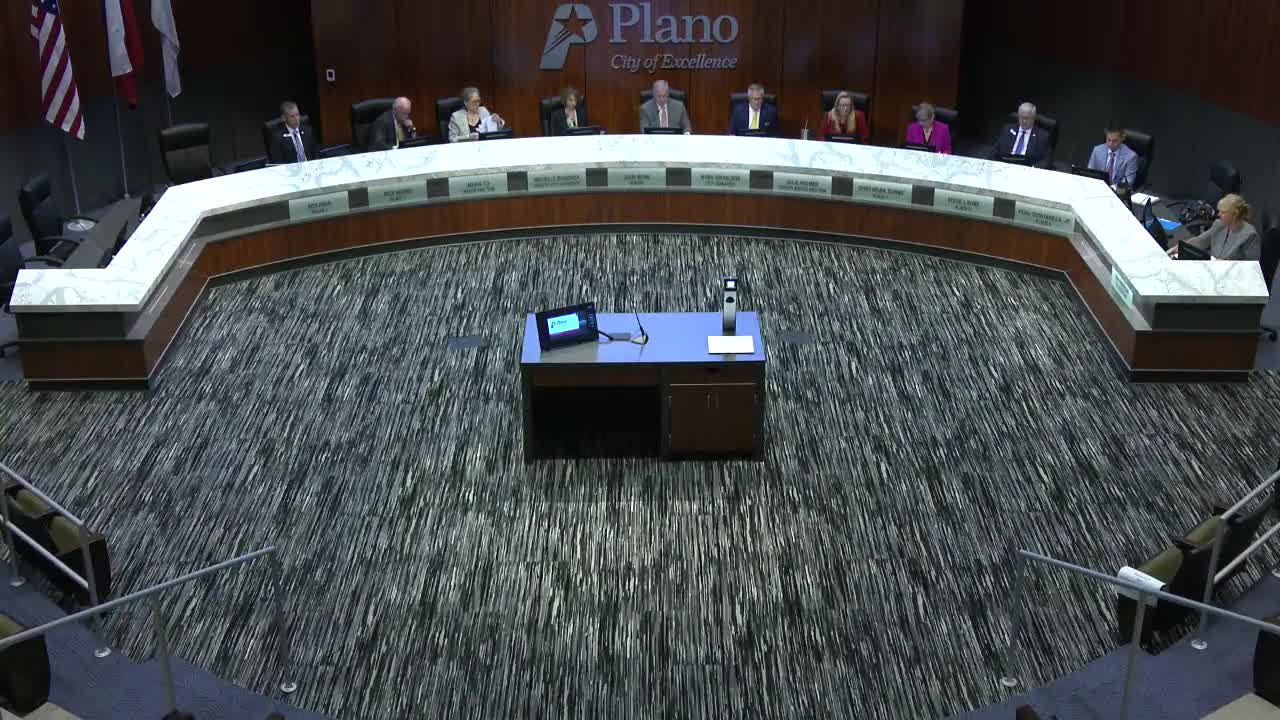Plano adopts 24/72 firefighter schedule, approves implementing civil‑service ordinance
Get AI-powered insights, summaries, and transcripts
Subscribe
Summary
Plano City Council approved a meet‑and‑confer agreement shifting sworn fire personnel from a 24/48 to a 24/72 schedule and passed an ordinance updating civil‑service classifications and pay structure tied to that change.
Plano City Council on a unanimous vote approved a meet‑and‑confer agreement to move sworn fire‑rescue field personnel from a 24/48 schedule to a 24/72 schedule and then adopted an ordinance updating civil‑service classifications and pay for the Plano Fire Department. The council voted 8–0 to adopt the schedule and later passed the ordinance, which implements related position counts, step plans and pay provisions.
The staff presentation said the schedule change will reduce average weekly hours for firefighters from about 56 to closer to 42 and will require hiring an additional “D” shift over a five‑year phasing plan. “This provides our firefighters with more time to rest and recover and puts them closer to being on par with the scheduled weekly work hours for the rest of the city,” a city staff presenter told the council. The presentation said the change is designed to extend careers and help recruit personnel.
Under the eight‑year agreement described to council, newly hired firefighters will follow a five‑step progression to maximum pay; current field personnel will freeze base salaries for four years and then move to a median‑comparison compensation philosophy with a potential catch‑up adjustment in year five. Staff said the city expects an additional $10,000,000 in recurring cost beginning in year five and that hiring will occur at roughly 22 field personnel per year during the transition.
Deputy Mayor moved the adoption of the 24/72 schedule and council member Lebine seconded the motion; both motions carried 8–0. The council then approved an ordinance that repealed the prior fiscal‑year classifications and established the new position counts, step plan for hires on or after 10/01/2025, and certification/assignment pay schedules effective 10/01/2025.
Officials and staff named representatives from the Plano Firefighters Association and city management as participants in negotiations; the staff presentation listed association and city participants who negotiated terms and detailed appendices that describe Kelly days, debit days and promotion plans used to cover shifts during the transition. City staff said the ordinance and the meet‑and‑confer agreement are consistent and that item two on the agenda was placed after the agreement so the ordinance would take effect only after the contract was approved.
The council recorded no dissent and made no changes to the agreement at the meeting. Implementation steps the staff identified include hiring the phased personnel each year, enacting the step plan for new hires on the effective date, and budgeting the forecasted recurring cost beginning in year five.
The item was presented and voted on during the council’s regular meeting; council members thanked the bargaining teams and emphasized public‑safety benefits of rested responders.
